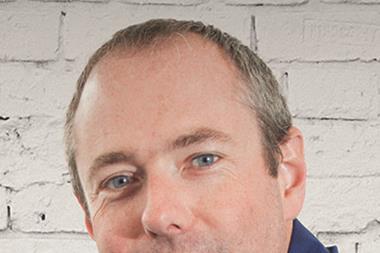Think of the last time you paid a bill – did you walk to your local bank branch and set up a standing order?

The answer is probably no – I imagine it took a matter of seconds and a few clicks or swipes. The same goes for booking your next getaway: holidaymakers have taken matters into their own hands with the emergence of disruptive, digital-first companies like SkyScanner and Airbnb, which has led to traditional high street travel agents closing up and down the country as consumers instead look to save time and money online.
When so many other major industries have slashed the time and effort it takes to get things done digitally it begs the question: Why is the property world lagging so far behind?
Property viewings take up a serious amount of time, and are generally inconvenient to fit into an already-busy working schedule – there’s a good reason why moving home is still considered one of life’s most stressful experiences. Similarly, getting a mortgage is still an incredibly laborious process involving mountains of paperwork. Every major financial institutions is attempting to digitise this process, but it’s early days and the mountain to climb is steep.
Of course, the likes of Zoopla and RightMove have built very successful digital businesses in this sector, but they are only able to fulfil the very early part of the process. Once you’ve found a property you’re interested in, everything is taken offline.
Luckily we can already see the first glimmers of digital disruption on the property industry’s horizon. Last year online estate agent SellMyHome.co.uk debuted the first ever virtual reality-powered open house, used to show off a London flat. While a straw poll today may find many people want to view a property in person before making a decision, consumers do adapt very quickly to digital disruption. With VR making a big entrance this year at CES, change is no doubt afoot in the property industry and companies should be thinking today about how digital change will affect their business in the coming years.
Recent figures from Amazon show that online estate agents, the latest entrants to have burst onto the property scene, are driving most of the industry’s spending on TV advertising – PurpleBricks was the biggest spender in 2015. These efforts to become part of public consciousness are clearly working, as online estate agents are rapidly gaining ground on traditional agents due to the dramatic reduction in the cost to consumers of selling their homes this way.
It is important to remember that in the property sector, the quality of the service that a customer gets will often be the point of difference: this means that in this incredibly price-sensitive market, service is all-important. Digital disruption puts the consumer in control of the house-hunting process, and ultimately results in a better overall service. I believe 2017/18 will be breakthrough years for the property industry. The consumer has never been so ready for, or so enthusiastic about trying new platforms, and there are several exciting new digital developments which are tipped to become far more mainstream this year. But in my opinion, the big winner for digital disruption in this sector will be a provider that links up all of the home buying/selling dots and provides a connected portal – a ‘one-stop shop’ for estate agents, surveyors, solicitors and so on. The future is all about how good the service. The better the service experience, the bigger businesses can provide.
The question on estate agents’ minds should be: How can we change our offerings to better meet our customers’ expectations? How can we make our services an indispensable part of our customers’ lives, and the way they find their new home?
Peter Veash is CEO and founder of The BIO Agency






























No comments yet